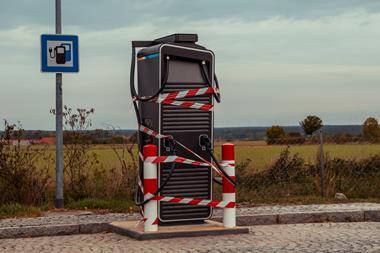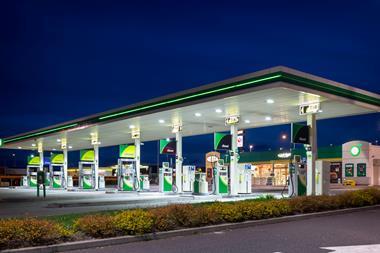Financial pressures mean safety procedures are being neglected in some areas of the forecourt sector, according to new research by sign installation and maintenance company Xmo Strata
The company has analysed the basic causes of more than 1,500 potential safety incidents on filling station forecourts, and warned that the recession has led to reduced maintenance regimes in some areas.
It also said that businesses are buying cheaper components and materials, resulting in greater cost in the long run – and the risk of accidents.
“Cheaper components have a shorter life and will tolerate less wear and tear,” said Xmo Strata managing director Steve Martin. “Cheaper safety oversight sends a signal that safety is something that is only taken seriously when cash is plentiful.
“Reduced maintenance regimes tend to simply shift the emphasis from planned maintenance, in which problems are prevented, to reactive maintenance, in which you wait for the problem to actually happen before fixing it. That has obvious safety implications.”
However, the analysis also shows that the industry as a whole is becoming increasingly professional in reporting incidents and more data is available to analyse than would have been the case 5-10 years ago.
“There an increasing number of well-trained oil company executives and facilities management staff who are demanding more of suppliers,” said Martin.
“At the same time, the suppliers and contractors themselves are becoming much better at ensuring that crews have the right tools for the job and the training to use them.
“They are setting higher work standards for employees, which in turn tends to reduce the number of occasions on which tools and equipment are abused or procedures ignored.”
Xmo Strata investigated the incidents using a process known as ‘Proactive Incident Analysis’, which is designed to ensure that the causes of incidents are clearly understood.
“There is no point in making assumptions about an incident and implementing ‘reflex action’ solutions which may fail to address the real cause and – at worst – make the situation worse,” said Martin.
“Safety professionals use Proactive Incident Analysis to ensure that any solutions designed to prevent a repeat of an incident spring from an informed and objective assessment of the real facts.”
XMO Strata said the analysis – along with other data gathered by the company – is used to inform in-house safety strategies, training and briefings and to provide high calibre, informed advice to customers.

































No comments yet